You may recall that a few weeks ago I did a post titled Classifying Genres - Part 1 all about how we, as bloggers and bookworms classify book genres. We got some really great feedback on this post. Some of you even went so far as to do your own posts about how you classify genres:
The Overstuffed Bookcase: Genre Definitions
Project to be Read: Genres
We love that you did this because it proved how varied classifying genres really is. If these posts taught us anything, it's that genres are far from "black & white" which leads us to our next discussion post, "Classifying Genres Part 2: The Crossovers".
*rolls up sleeves*
Ok, it's about to get serious!
If classifying genres isn't confusing enough, let's muddle it up some more but trying to classify the crossovers. Ya know, those books that fit into not just one, but TWO or more categories. Here is where my head goes all Beetlejuice!
If classifying genres isn't confusing enough, let's muddle it up some more but trying to classify the crossovers. Ya know, those books that fit into not just one, but TWO or more categories. Here is where my head goes all Beetlejuice!
Examples:
YA Historical Fiction
YA Horror
Historical Paranormal
YA Horror
Historical Paranormal
Horror / Humor
Sci-Fi / Fantasy
Sci-Fi / Fantasy
Dystopian / Post-Apocalyptic
Etc.
Etc.
Let's start with the easy ones, the YA crossovers. For the sake of simplicity, we'll just say that YA is any book where our protagonist is a teenager and the book is aimed at the adolescent market. Since YA is such a broad category, it stands to reason that we'll have a great variety of sub-genres within YA: Contemporary YA, Teen Romance, Paranormal YA, Fantasy YA, etc. Enter YA Historical Fiction and
YA Horror and that's where I have to stop and think.
 Here's an example of a YA Historical Fiction in which I was torn whether to categorize as either YA OR Historical Fiction. In our New Release post, I filed it as a Historical Fiction because that was my first reaction to it when I saw the cover and read the blurb. In addition, Philippa Gregory is a known Historical Fiction writer. However, I was "corrected" and told that it was actually a YA. Well, both are correct so I guess it's really up to us decide if it's a YA first or Historical Fiction first.
Here's an example of a YA Historical Fiction in which I was torn whether to categorize as either YA OR Historical Fiction. In our New Release post, I filed it as a Historical Fiction because that was my first reaction to it when I saw the cover and read the blurb. In addition, Philippa Gregory is a known Historical Fiction writer. However, I was "corrected" and told that it was actually a YA. Well, both are correct so I guess it's really up to us decide if it's a YA first or Historical Fiction first.
Tidbit: If you go to B&N, you'll find this book in the Teen section. In Goodreads, though, more people have filed this book as a Historical Fiction than YA.
Anna Dressed in Blood by Kendare Blake is another good example of a YA Horror.
This is an example of a Historical Paranormal. Firelight by Kristen Callihan is set in Victorian London. The heroine has a very dangerous and powerful ability and the hero is plagued by the consequences of a mystical mistake.
Kiss of the Rose by Kate Pearce is also a good example. It's set in Tudor England where King Henry VIII's life is threatened by vampires and he must turn to Druids for protection.
This is a genre that I enjoy but is not so common so I always have this weird sense of conflict when I try to place it. I guess creatures of the night are reserved for modern times (we'll just ignore the fact that the original Dracula was written and set in the 19th century). Alas, these books went into my Historical shelf.
Another that I think would fit nicely into this genre is Shaun of the Dead. Most of you have probably seen the movie so you know that it's hysterical, but the zombies galore and gore qualify it as a horror as well.
And now our favorite: Dystopian / Post-Apocalyptic
In these stories, a dystopian society is the direct result of a catastrophic event that negatively impacted society.
Also a good post that elaborates on Dystopian Fiction is:
Dystopian Fiction: What is it Really? over at Giraffe Days
So there you have it folks. I'm sure there are LOTS of other "crossovers" that I haven't mentioned but these are the ones I've personally come across. I guess the line that divides one genre from another will continue to blur as writers experiment with new ideas and stories and we, the readers, will just have to do our best to keep up :)
Are there any other interesting "crossovers" you've encountered?

Kiss of the Rose by Kate Pearce is also a good example. It's set in Tudor England where King Henry VIII's life is threatened by vampires and he must turn to Druids for protection.
This is a genre that I enjoy but is not so common so I always have this weird sense of conflict when I try to place it. I guess creatures of the night are reserved for modern times (we'll just ignore the fact that the original Dracula was written and set in the 19th century). Alas, these books went into my Historical shelf.
Horror Humor is a wee bit more uncommon and I imagine it's because telling a story that is both horrifying and amusing is a daunting task. I personally haven't read Pretty When She Dies by Rhiannon Frater but I was told that it's gory, scary but also contains scenes that make you laugh.
Another that I think would fit nicely into this genre is Shaun of the Dead. Most of you have probably seen the movie so you know that it's hysterical, but the zombies galore and gore qualify it as a horror as well.
The Pendragon Legacy by Susan Kearney...
Oh, where do I even begin with this?
Oh, where do I even begin with this?
Spaceships and alien planets = Sci-Fi √
Dragons = Fantasy √
Dragons = Fantasy √
Telepaths = Paranormal √
Society enslaved & ruled by enemy tribe = Dystopian √
Society enslaved & ruled by enemy tribe = Dystopian √
Hot, steamy smexy smex = Romance √
So tell me, where in the hell do I file these? That's right, on the Sci-fi/High Fantasy/Paranormal/Dsystopian/Romance shelf...DUH!
And now our favorite: Dystopian / Post-Apocalyptic
We all know what these mean and while they do seem like they'd be synonymous with each other, I don't think that's entirely true.
*takes deep breath*
A Post-Apocalyptic event is likely to lead to a Dystopian society but a Dystopian society can exist without having been created by a Post-Apocalyptic event. A fellow blogger and rockin' chick commented on our original post stating that she couldn't think of a Dystopian that was NOT the result of a Post-Apoc event but Delirium by Lauren Oliver, Divergent by Veronica Roth, and Matched by Ally Condie are good examples of just that. In those, a broken society is the result of people on power-trips or trying to "reorganize" society. My blogger pal said that she could, however, think of books that are Post-Apoc but NOT Dystopian which I'm not so sure of. In my opinion, a dystopian society is not just a people ruled by a corrupt government but can also be a people who live with no societal structure so in effect wouldn't Post-Apoc be a sub-genre of Dystopian?
*takes deep breath*
A Post-Apocalyptic event is likely to lead to a Dystopian society but a Dystopian society can exist without having been created by a Post-Apocalyptic event. A fellow blogger and rockin' chick commented on our original post stating that she couldn't think of a Dystopian that was NOT the result of a Post-Apoc event but Delirium by Lauren Oliver, Divergent by Veronica Roth, and Matched by Ally Condie are good examples of just that. In those, a broken society is the result of people on power-trips or trying to "reorganize" society. My blogger pal said that she could, however, think of books that are Post-Apoc but NOT Dystopian which I'm not so sure of. In my opinion, a dystopian society is not just a people ruled by a corrupt government but can also be a people who live with no societal structure so in effect wouldn't Post-Apoc be a sub-genre of Dystopian?
*phew*
In these stories, a dystopian society is the direct result of a catastrophic event that negatively impacted society.
Also a good post that elaborates on Dystopian Fiction is:
Dystopian Fiction: What is it Really? over at Giraffe Days
So there you have it folks. I'm sure there are LOTS of other "crossovers" that I haven't mentioned but these are the ones I've personally come across. I guess the line that divides one genre from another will continue to blur as writers experiment with new ideas and stories and we, the readers, will just have to do our best to keep up :)
Are there any other interesting "crossovers" you've encountered?





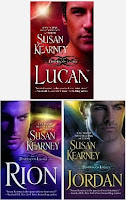





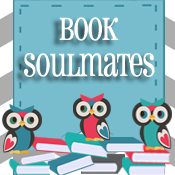


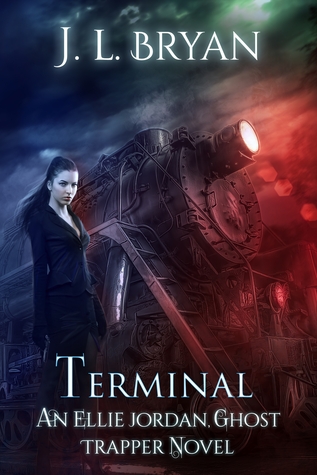







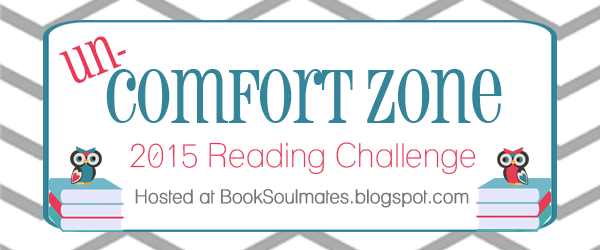
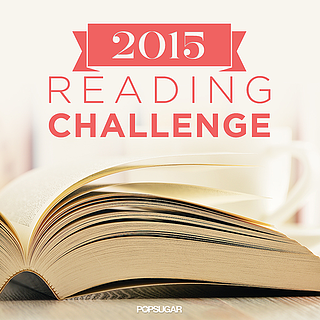



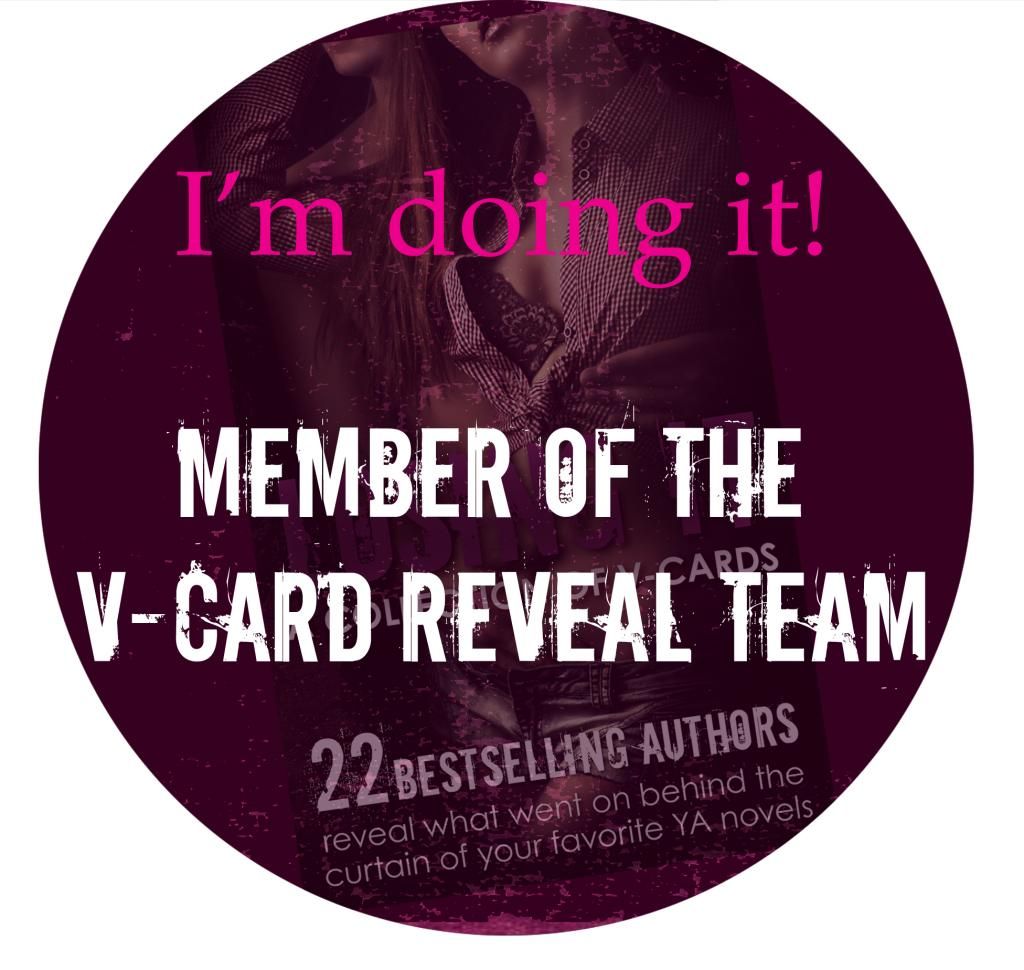

Genres drive me insane, honestly some I just can't wrap my head around. Sometimes I know, sometimes I do not know.
ReplyDeleteGregory is most def YA as it's published like that. And of course I would have put HR there too cos YA just says the age group after all. But at the same time I wonder about it because in her adult books she puts in a bit of "magic" sometimes too..so that does not make it HR and she also have too much romance for it to be HR..and that is why I hate genres ;)
Allll the time. It's so hard to decide where certain books belong.
ReplyDeleteTo start. My brain is already in shambles cuz I'm towards the end of THIS IS NOT A TEST. Then, I read this post. My brain=demolished. I'm NOT so sure I agree on this whole dystopian/post apocolyptic portion.
ReplyDeleteI think any society that is basically overthrown and corrupt in some way shape or form, all for the SAKE of CONTROLLING the people would be dystopian. I don't think any book would JUST be post-apoc but not dystopian.
As for the PENDRAGON LECACY, my goodness! Can we say confusing? Even if we had this ALL IRONED OUT, that series would come along and mess us alllll up! I guess it has to go with the BIGGEST elements in the book, right? So if its MOSTLY sci-fi or mostly fantasy, shelve it there. If its all broken up into elements of each genre then idk! :-( SO CONFUSING. As for the rest, I think you straightened it all out. :-) ::claps::
@Cass: I agree! That's why I feel that Post-Apocalyptic should technically be a sub-genre of Dystopian.
ReplyDeleteThe Pendragon Legacy is a DOOZY (lol) and I shelved it with my other fantasy/romance books.
I think that Post-Apocalyptic where no form of authority has yet been established would simply be post-apoc. I have seen books where it's right after the "event" and it's the formation of some kind of world afterwards. Completely different in my mind.
ReplyDeleteGreat classification though!
What an awesome post. thanks for the classification.
ReplyDeleteOMG! You're making me thiiiiink today.
ReplyDeleteOkay. Examples of Post-Apoc books that aren't Dystopian. Gone by Michale Grant. Although there are leanings toward the end of the book that might lead to a Dystopian society, the bulk of the book focuses on the kids trying to survive. I haven't read the rest of the series, so it could very well veer toward Dystopian later on but that book in particular doesn't.
Joss Ware's The Envy Chronicles. Set after a major cataclysmic event, the society functions well there's just some VERY BAD MEN who want to destroy what they've built. Oh, and there are zombies!
And... there are more. I know there are. I just can't think of them. Lol!
I think Jeaniene Frost lands quite nicely in the middle of Urban Fantasy and Paranormal Romance. I always think of her as crossover.
ReplyDeleteAnd so much more that I can't think of right now...sorry I'm no help today!
The Walking Dead is clearly post apoc, there is no dystopia to that.
ReplyDeleteI agree about the YA thang..I actually shelve my ya books in the following category.. YA, YA contemp, YA Horror, YA Hist Fict, YA UF, YA PNR etc etc
It's endless!
So much work and effort in this post, Isalys, impressive!
ReplyDeleteThe funny thing about YA is that it's not a genre, is it, it's a marketing niche. I've been filing reviews under YA but lately I've been wondering if that's such a good idea. Not that there isn't a strong difference between YA and adult fiction, because there is, both in terms of writing styles, themes and readability, among other things, but YA is just a way of understanding the target age range, not what genre it is, so I've been pondering whether to integrate them with the other genres with (YA) at the end, or add their genre in brackets in the YA section. (Yes I'm a total closet librarian and a real nerd when it comes to organising my books!)
I would have to disagree with you on the subject of post-apocalytpic and dystopian worlds, though. They are two different things, and I blame current publishing trends for making people confused. It used to be so simple! Remember that an apocalypse is a world-changing event, something sudden and catastrophic that wipes out large sections of the population, and drastically alters the way people live. So that, a post-apocalypse story is set after the event, often long after, and shows a community of people who have constructed a new way of living. Yes, this can sometimes be a dystopian society - read Bernard Beckett's Genesis for an excellent example of this - but often it's not, it's just people surviving in different ways, often clashing with each other. Remember, too, that a dystopia is like an unsuccessful utopia. If a utopia is the establishment of an ideal society that benefits everyone equally and everyone is happy, then a dystopian society is one where that so-called utopian society is actually rotten, dark, repressive, cruel etc., but usually the people are brainwashed into believing otherwise. As you mentioned, Delirium is a great example of this. (I think you said Delirium somewhere, yes?)
What you need to have in place for a dystopia is the illusion of a perfect society. They are not, generally, survival stories like post-apocalyptic novels are, in the physical sense. They are survival stories of the spirit, the will, the individual personality. Because in order for a utopia to exist, you have to eliminate the individual, which is why utopia's don't really work and why they turn into dystopias. It's fascinating isn't it. Does that make sense?
Both post-apocalyptic fiction and dystopian fiction are sub-genres of general fiction/literature, and sub-genres of science fiction and sometimes fantasy. You could also call them Speculative Fiction.
Okay, this is hysterical, because I disagree about the Dystopian/Post-Apocalyptic comparison as well. I consider Post-Apocalyptic fiction as taking place soon after the apocalypse and before the dystopia has formed.
ReplyDeleteGreat post, once again! I'm sooo behind on my Google reader but I saved this post to comment on! Thanks for giving me a shout out! ;)
ReplyDeleteOne thing I have come across when it comes to these things is that I think of YA as the age group the book is about/written for, period. So it shouldn't come into play when you're talking about genres. Horror is horror is horror, whether it's Adult or YA. Same with all the other genres. So for someone to say, "you're wrong, that book isn't Historical Fiction, it's YA" is a bit ridiculous. Its genre is Historical Fiction, and its age group is YA. Therefore, it's both, not one or the other. Then again, that's just me, and as we've seen from all these posts, genre definitions, like you said, aren't black and white. Great post!! ;)